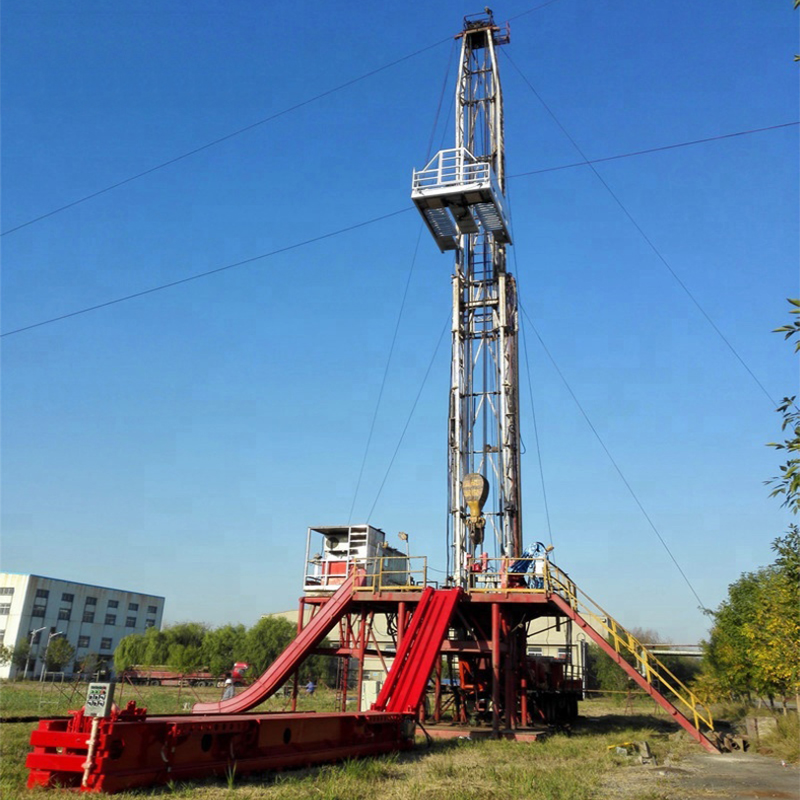How does a Workover Rig differ from a Drilling Rig?
In the dynamic realm of oil and gas extraction, two pivotal players take center stage: Workover Rigs and Drilling Rigs. These industrial titans, though often misconstrued as interchangeable, serve distinct purposes in the energy sector. In this comprehensive exploration, we unravel the nuances that differentiate these two crucial components, shedding light on their functionalities and applications.
Workover Rigs Unveiled
Defining Workover Rigs
Workover Rigs stand as veritable workhorses in the oil and gas industry, meticulously designed for enhancing the production of existing wells. Unlike their drilling counterparts, these rigs step onto the stage after initial drilling is complete, addressing maintenance, stimulation, and intervention needs.
Operations and Applications
The primary mission of a Workover Rig revolves around interventions to optimize well productivity. These interventions encompass tasks such as wellbore cleanouts, sidetracking, and remedial cementing. Essentially, Workover Rigs breathe new life into mature wells, ensuring sustained yields and operational efficiency.
Components and Configurations
Workover Rigs boast a modular structure, equipped with a mast, drawworks, and other essential components. The flexibility in their design allows customization to suit specific well conditions, offering a versatile solution for varied intervention scenarios.
Navigating the Drilling Rig Landscape
Unraveling the Drilling Rig
Contrary to Workover Rigs, Drilling Rigs spearhead the initial phase of hydrocarbon extraction. Their primary function involves boring into the Earth's crust to tap into reservoirs of oil and gas. The drilling process establishes the wellbore, laying the groundwork for subsequent operations.
Drilling Techniques and Technologies
Drilling Rigs employ diverse techniques, ranging from conventional rotary drilling to advanced directional drilling. The choice of drilling method depends on geological conditions, target depths, and the specific requirements of the exploration project. This adaptability underscores the pivotal role that Drilling Rigs play in the quest for energy resources.
Rig Components and Innovations
A Drilling Rig's anatomy encompasses a derrick, drill string, and a slew of auxiliary systems. Technological advancements have birthed innovations like automated drilling systems and sensor-laden drill bits, elevating the efficiency and precision of the drilling process.
Key Contrasts and Comparative Insights
Rig Lifecycle Variances
While both Workover and Drilling Rigs share the common goal of contributing to hydrocarbon extraction, their lifecycles diverge significantly. Workover Rigs engage with wells post-drilling, ensuring ongoing well optimization. Drilling Rigs, on the other hand, mark the inception of this journey, birthing wells with their initial bore.
Operational Timeframes
Workover operations typically exhibit shorter timeframes compared to the extensive periods associated with drilling. Workover interventions aim for swift and targeted enhancements, minimizing downtime and swiftly returning wells to peak production.
Conclusion
In the intricate tapestry of oil and gas operations, understanding the nuances between Workover Rigs and Drilling Rigs is paramount. Each plays a pivotal role in the energy production lifecycle, contributing unique strengths to the quest for hydrocarbon resources. This clarity not only fosters operational efficiency but also lays the groundwork for informed decision-making in the dynamic landscape of resource extraction.
588
0
0



Comments
All Comments (0)